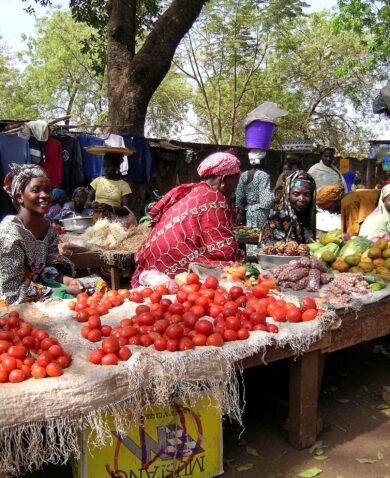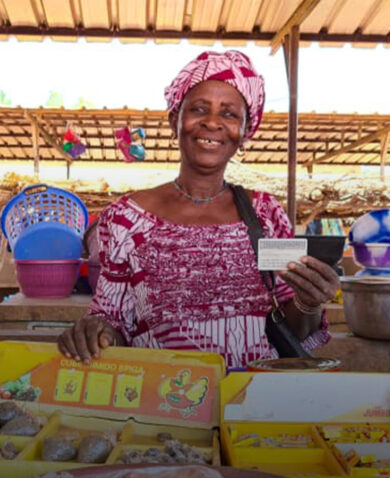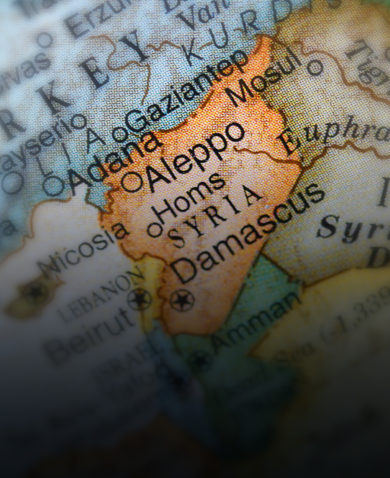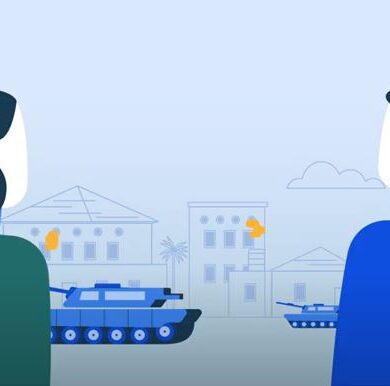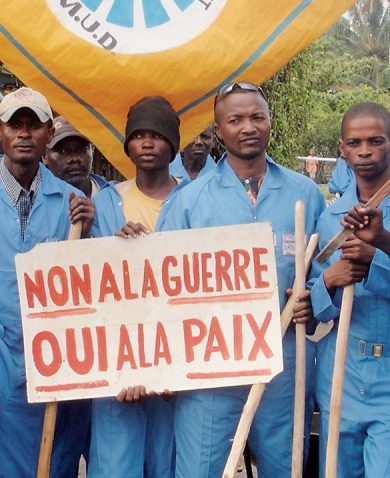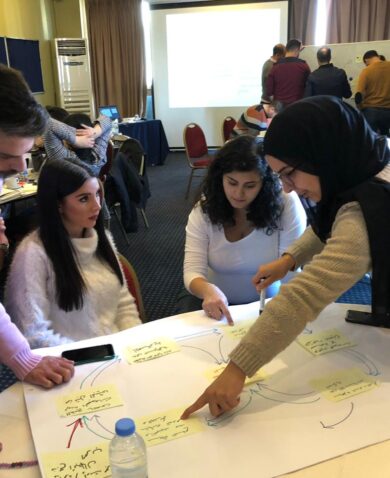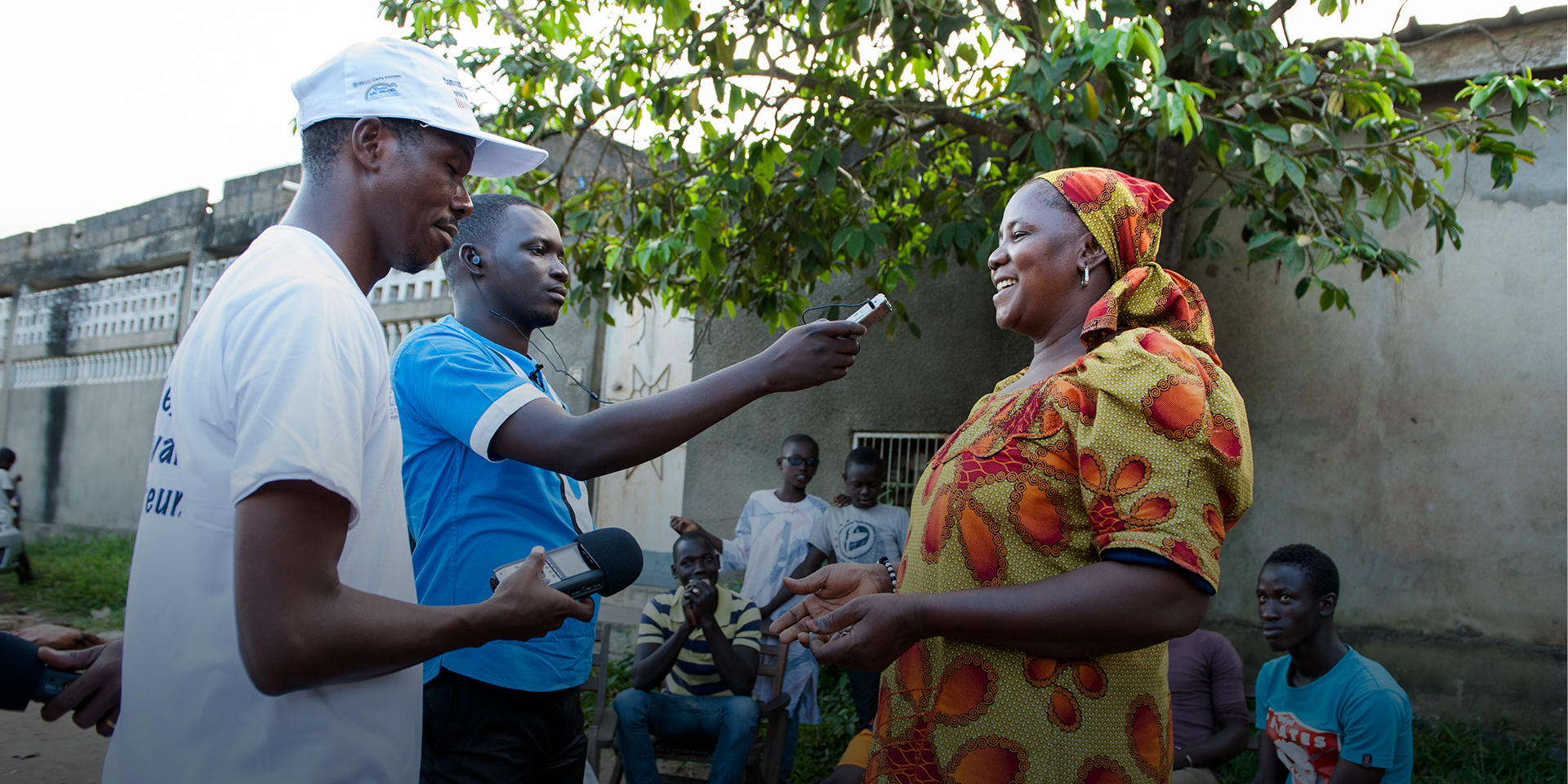
Know Your SDGs: To Create Sustainable Peace, A Focus On Governance Is Necessary But Not Enough
September 18, 2015 | 3 Minute ReadAfter post-election violence in Côte d’Ivoire in 2010, community members came together to share their suffering and discuss ideas for healing rifts in their communities. SDG 16 will need to address attitudes and identity if it is to be successful in creating lasting peace.
Daily headlines highlight the urgent need for the international community to find a coherent shared approach to managing and mitigating conflict. In Syria alone — just one of the countries most affected by war in recent years — 74,000 people died in 2014 and nearly 250,000 have died in the last three years due to the country’s ongoing conflict. At the start of 2014, persons internally displaced because of armed conflict, generalized violence, and human rights violations numbered 33.3 million worldwide.
As these grim numbers suggest, the development community must prioritize mitigating crisis and enabling peacebuilding. Conflict costs precious lives. It also forces people from their homes, deprives them of livelihoods, and creates increasingly vulnerable societies. Conflict sets back development investments in health, education, and economic growth by generations, undermining billions of dollars in development investments and wreaking havoc on lives, communities, and entire regions.
The new sustainable development goals (SDGs) acknowledge this reality. Goal 16 devotes attention to development in crisis and post-crisis situations, aiming to “promote peaceful and inclusive societies for sustainable development, provide access to justice for all and build effective, accountable, and inclusive institutions at all levels.”
In explicitly calling out the need for “peaceful and inclusive societies,” Goal 16 takes a necessary first step toward better incorporating peacebuilding into development. Yet the proposed goal and its sub-goals still fall short. Goal 16’s sub-goals focus almost exclusively on governance emphasizing formal government structures and processes.
For instance, Goal 16’s sub-goals (including, 16.3 “promote the rule of law at the national and international levels, and ensure equal access to justice for all” and 16.10. a. “ensure public access to information and protect fundamental freedoms, in accordance with national legislation and international agreements”) read like a primer in governance programming.
Good governance is an essential component for creating peaceful and inclusive societies, but it is not the only building block. Critical learning from the peacebuilding field over the last decades suggests that Goal 16’s narrow focus on formal governance is not adequate for today’s challenges.
Much conflict in regions across the globe emerges from the toxic mix of threatened identity and weak governance institutions. Untangling this dangerous combination requires building up good governance in parallel with addressing cleavages in society.
Goal 16’s current formulation does little to outline a clear path toward interventions that will be effective in countering violence. Efforts to address attitudes and identity—elements critical to constructing stable societies long-term—have been left out. Such interventions are “softer” and more challenging to quantify; it is far easier to count the number of court cases heard or the number of identification papers provided than to measure the depth of cleavages in a society and to determine how interventions might mend such rifts.
But eschewing an important part of the conflict equation because it is hard to measure does not provide a durable solution. Research has consistently shown that key drivers leading people to join violent extremist movements include perceptions of injustice and persecution or marginalization, isolation, and the draw of social networks advocating joining a violent group as a way to achieve justice and glory.
Those working in conflict-affected societies should redouble their efforts to understand when and how interventions addressing individual attitudes, group attitudes, and identity can prove effective.
For example, when crises in other parts of the Middle East began spilling over into Lebanon, sectarian tensions mounted. The heavy influx of refugees and their frequent concentration in underprivileged areas led to serious socio-economic problems and tensions with host communities. Through the Lebanon Civic Support Initiative, Chemonics worked with USAID’s Office of Transition Initiatives to bring together Lebanese and refugee populations in committees to jointly identify community needs, and implement community services in waste and sewage management, water network rehabilitation, and other public services. By offering an opportunity to address problems together, participation in these committees helped these groups to change their attitudes towards one another, reducing tensions. After post-election violence in Côte d’Ivoire in 2010, Chemonics supported a network of local radio stations to facilitate community discussions where victims could openly share their suffering and callers could share ideas on how all community members could participate in healing processes.
Goal 16 outlines a laudable goal of promoting peaceful and inclusive societies, but it could go further in incorporating evidence and lessons from the field of peacebuilding on the important role that attitudes, identity, and community-building play in preventing or mitigating conflict. A focus on governance interventions is simply not enough.
Curious about the SDGs and post-2015 development agenda? Watch this space. “Know Your SDGs” is a recurring weekly blog series digging into the goals in the lead-up to the United Nations General Assembly and post-2015 development summit next week.
Photo credit: Kendra Helmer/USAID






